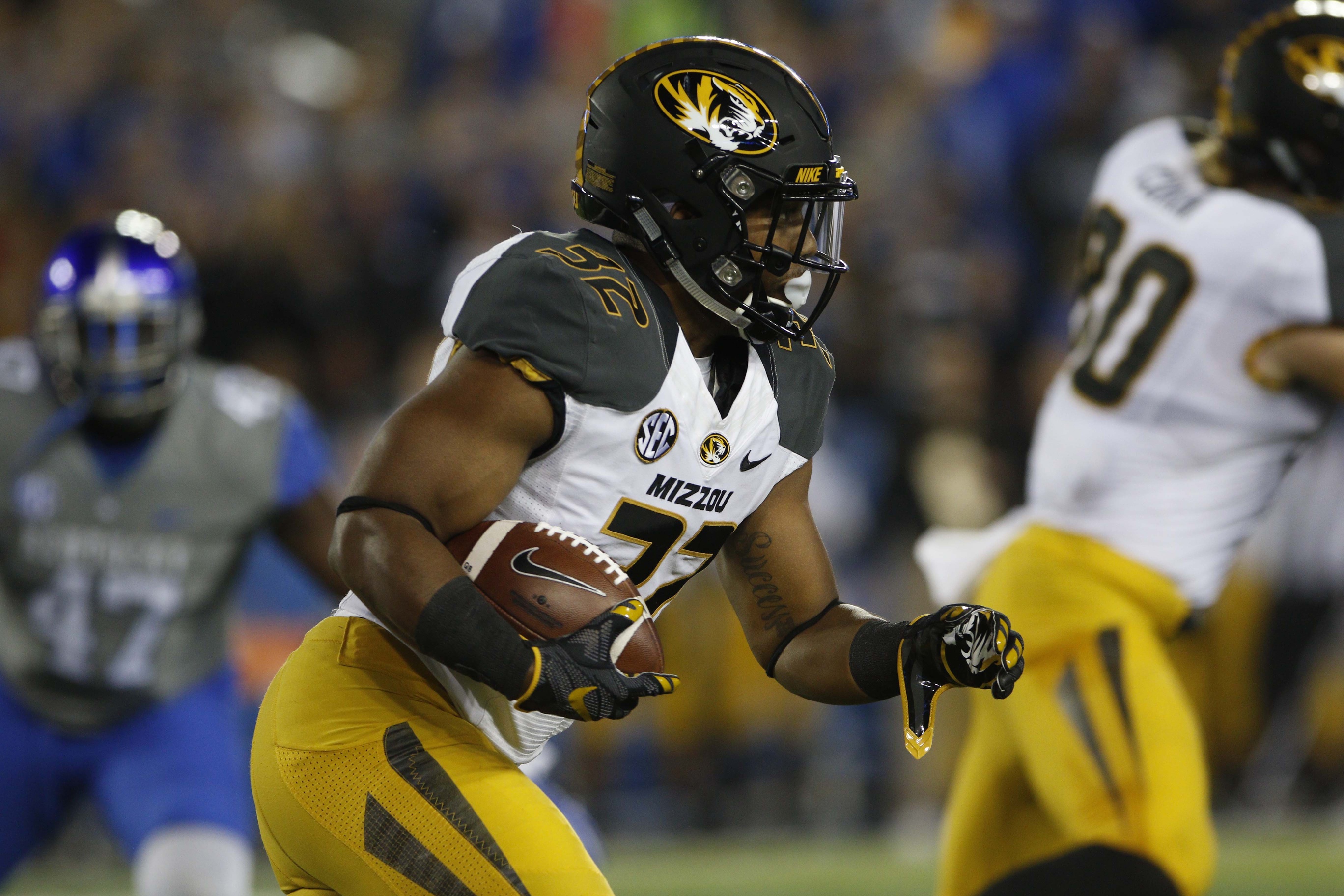
Actions of Missouri football team to possibly reverberate across all of college football
By John Hollis
Published:
Don’t buy for one minute the positive face put forward by University of Missouri or NCAA officials following this week’s stunning developments that saw the Tigers football team leverage its considerable financial muscle to force the resignation of University of Missouri System President Tim Wolfe.
Desperate to appear out in front of an issue that has long terrified them, school and NCAA officials were quick to let everybody know that they were listening and always sensitive to the concerns of both the regular students who initiated the calls for change and the student-athletes who joined them following a string of racially motivated incidents at the predominantly white campus in Columbia.
The reality couldn’t be further from the truth.
NCAA officials all across the country were undoubtedly privately shuddering as the events unfolded, starting with a threat on Sunday by the school’s football team to effectively go on strike from all football-related activities until Wolfe resigned or was fired. It quickly blew up into a national story, culminating with Wolfe’s shocking departure just 24 hours later and Chancellor R. Bowen Loftin soon following suit.
WE ARE ONE!!!! The coaches and administration are behind us!!!! #ConcernedStudent1950 pic.twitter.com/XCgVbz5ZUV
— HeMadeAKing (@1Sherrils_2MIZZ) November 8, 2015
It’s never been more clear than now who wields the real power in a major college sports landscape long driven by big money, and it’s not the school administrators and coaches.
It means the NCAA’s worst nightmare of the players running the show is now a potential reality.
How that new reality translates into other issues remains to be seen, but it’s clear that a new day has just dawned in big-time college athletics. The days of the voiceless student-athletes meekly staying in line and staying quiet about perceived injustices for fear of losing their scholarship might have just gone the way of the eight-track tape and the dinosaurs.
Individually, they might not be much, but together they wield a mighty financial sword.
Missouri stood to lose $1 million for a breach of contract with BYU if its football players chose not to play in this weekend’s non-conference matchup in Kansas City, not to mention the large sums of money it would have lost in other projected revenues such as parking, merchandising and other sources.
But there’s no price tag that could have accurately measured the immense negative publicity the school would have endured from all corners had that ever come to pass.
College football is a billion dollar industry, one that often drives daily campus life and generous alumni donations. Green is the only color of consequence in that very specialized math. Don’t think so? Then ask yourself why Missouri football coach Gary Pinkel’s $4 million salary is 10 times what Wolfe made.
The Missouri football team’s most powerful weapon was itself, and its players realized as much and wisely wielded that power to their advantage.
History could well show us later that the moment they became self-aware was the day the major college sports landscape changed forever. It could be the day they began seizing control of the cash cow that is college football.
The Tigers are hardly the first athletes who have leveraged their platform and fame to address hot buzz social issues. The 1968 Mexico City Olympics was the site of the most famous of them all when 200-meter gold medalist Tommie Smith and bronze medalist John Carlos famously used their medal ceremony to raise their black-gloved fists in the air as a sign of protest to the way African-Americans were being treated back in the U.S. They were soon expelled from the Games.
Boxer Muhammad Ali was the brash, heavyweight champion of the world and an outspoken critic of the Vietnam War in 1967 when the U.S. Army refused his request for conscientious objector status because of religious reasons and drafted him anyway. Ali refused to go and was convicted of draft evasion, stripped him of his boxing title and banned him from the sport for three years. It wasn’t until 1971 that a Supreme Court decision overturned his conviction.
More recently, football players from Grambling University refused to play and forfeited a 2013 game against Jackson State in an effort to call attention to the decrepit conditions surrounding their once-storied football program. The national attention was an embarrassment to the proud school and forced immediate changes.
Yet, you don’t see these actions as often from football players, who are often ingrained at an early age to avoid making waves and always do as their coach asks so as to never let their teammates down. For the Tigers to have taken such a strong stand took incredible courage because, in doing so, they put both their scholarships and collective futures at stake for something they felt strongly about.
That’s to be commended, and all the more so given the campus’ relatively close proximity to Ferguson, Missouri, the site of some of the most ugly race riots to scar the nation recently.
But now that they have asserted their influence, college and NCAA officials alike have to be wondering about the precedent that has been set.
More specifically, what’s next?
How about a bigger piece of the financial pie now that it’s been unequivocally established that it’s the players who are really the engines driving the lucrative college football train?
Or what about in the SEC, where schools like Ole Miss and Mississippi State have struggled in trying to sever ties with their dark Confederate pasts in the form of Confederate flags and Rebel mascots?
They may get a little help now.
John Hollis is a contributing writer for Saturday Down South. He covers Georgia and Florida.







